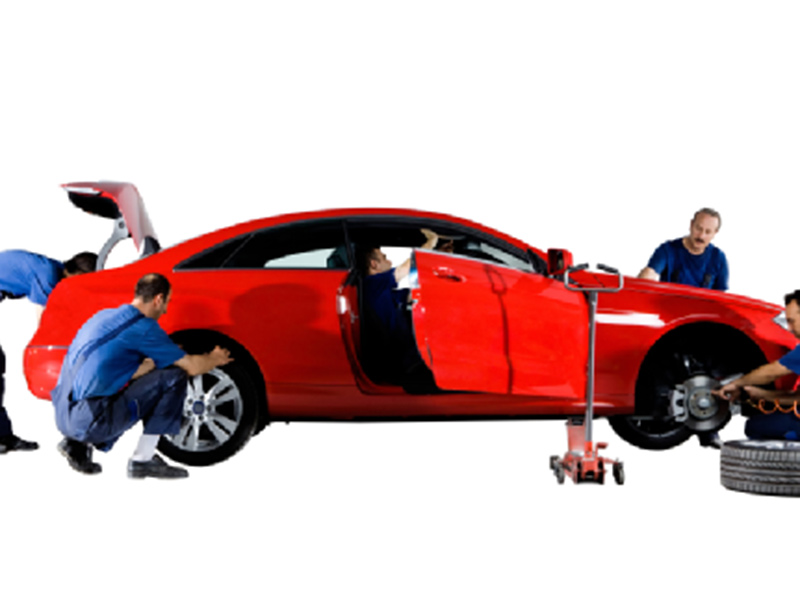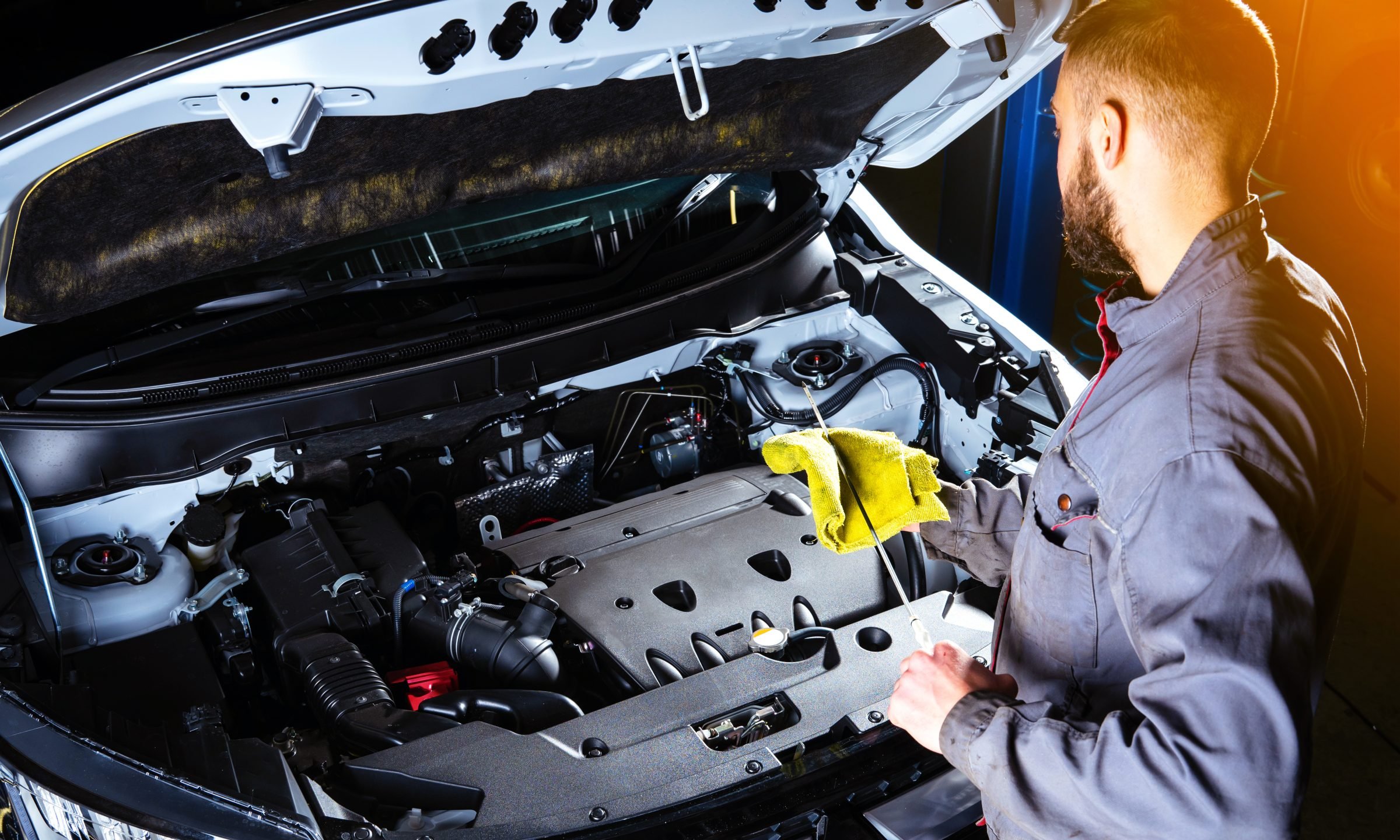All Categories
Featured
When your automobile starts to get too hot, it can be a frightening and demanding situation. However, comprehending exactly how to respond in these minutes and taking steps to avoid future getting too hot can aid safeguard your automobile and prevent costly repair services. If your car overheats and exactly how to prevent it from taking place once again., right here's what to do.
What to Do If Your Cars and truck Overheats. Draw Over and Switch Off the Engine The first thing you need to do if your automobile starts to get too hot is to draw over to a secure area, such as a parking lot or the shoulder of the road. Switch off the engine instantly to stop further damages. Running an overheated engine can trigger irreparable damage to the internal elements, including the radiator and cyndrical tube heads.
Permit the Engine to Cool After turning off the engine, give it time to cool down. Opening the hood can assist release warmth, yet beware as the engine and bordering locations may still be extremely hot. Wait at the very least 15-20 minutes before trying any kind of further activities.
Check the Coolant Level Once the engine has cooled, examine the coolant level. You can add coolant or water to the radiator or coolant reservoir if it is low. Never ever open up the radiator cap while the engine is warm, as this can create warm coolant to spray and burn you. Constantly wait till the engine is amazing prior to opening up the cap.
Examine for Leakages or Damaged Hoses While you are examining the coolant level, check for any kind of noticeable leakages or harmed tubes under the hood. Broken or broken hose pipes can cause coolant to leak out, bring about a getting too hot engine. You may need to call for roadside help or a tow to obtain the cars and truck to an auto mechanic. if you identify any type of concerns.
Ask For Support If you can't identify the reason of the overheating or the concern continues after completing the coolant, it's finest to call for roadside assistance. Driving with an overheated engine can create extreme damages to your auto and leave you stranded.
![]()
How to stop Your Automobile from Overheating. Inspect Coolant Levels Frequently One of the primary reasons of getting too hot is reduced coolant degrees. If required, make it a behavior to examine your coolant levels frequently and top them off. Describe your vehicle's handbook for the recommended coolant mixture and maintenance intervals.
Examine Your Radiator Your radiator plays an important role in maintaining the engine cool. Make sure there are no obstructions or particles blocking air flow with the radiator. If your radiator is obstructed or damaged, it might not function properly, causing getting too hot.
Maintain Your Air conditioning System The cooling system ought to be purged and filled up periodically. Over time, coolant can end up being polluted or shed its performance. Comply with the producer's recommendations for purging the system, generally every 30,000 to 50,000 miles.
Screen the Thermostat and Water Pump The thermostat controls the temperature of the engine, while the water pump distributes coolant with the engine. It can trigger the engine to get too hot if either of these elements stops working. Have your technician inspect the thermostat and water pump during regular upkeep.
Stay Clear Of Overloading the Vehicle Overloading your lorry, especially on long journeys or hot days, can stress the engine and the air conditioning system. Bear in mind your vehicle's weight limits and try to stay clear of bring hefty lots, specifically when driving in severe temperature levels.
Drive with Care Aggressive driving, such as speeding or rapid velocity, can enhance engine stress and warm production. Slow down, particularly on hot days or when driving up high slopes, to lower the danger of getting too hot.
![]()
Verdict. Knowing what to do if your auto gets too hot can stop more damages to your engine and aid you take care of the situation safely. By consistently inspecting your coolant degrees, inspecting the radiator and hoses, and keeping the cooling system, you can minimize the risk of getting too hot. With aggressive treatment and proper upkeep, your lorry will remain in good problem, guaranteeing you stay secure and prevent costly fixings later on.
What to Do If Your Cars and truck Overheats. Draw Over and Switch Off the Engine The first thing you need to do if your automobile starts to get too hot is to draw over to a secure area, such as a parking lot or the shoulder of the road. Switch off the engine instantly to stop further damages. Running an overheated engine can trigger irreparable damage to the internal elements, including the radiator and cyndrical tube heads.
Permit the Engine to Cool After turning off the engine, give it time to cool down. Opening the hood can assist release warmth, yet beware as the engine and bordering locations may still be extremely hot. Wait at the very least 15-20 minutes before trying any kind of further activities.
Check the Coolant Level Once the engine has cooled, examine the coolant level. You can add coolant or water to the radiator or coolant reservoir if it is low. Never ever open up the radiator cap while the engine is warm, as this can create warm coolant to spray and burn you. Constantly wait till the engine is amazing prior to opening up the cap.
Examine for Leakages or Damaged Hoses While you are examining the coolant level, check for any kind of noticeable leakages or harmed tubes under the hood. Broken or broken hose pipes can cause coolant to leak out, bring about a getting too hot engine. You may need to call for roadside help or a tow to obtain the cars and truck to an auto mechanic. if you identify any type of concerns.
Ask For Support If you can't identify the reason of the overheating or the concern continues after completing the coolant, it's finest to call for roadside assistance. Driving with an overheated engine can create extreme damages to your auto and leave you stranded.

How to stop Your Automobile from Overheating. Inspect Coolant Levels Frequently One of the primary reasons of getting too hot is reduced coolant degrees. If required, make it a behavior to examine your coolant levels frequently and top them off. Describe your vehicle's handbook for the recommended coolant mixture and maintenance intervals.
Examine Your Radiator Your radiator plays an important role in maintaining the engine cool. Make sure there are no obstructions or particles blocking air flow with the radiator. If your radiator is obstructed or damaged, it might not function properly, causing getting too hot.
Maintain Your Air conditioning System The cooling system ought to be purged and filled up periodically. Over time, coolant can end up being polluted or shed its performance. Comply with the producer's recommendations for purging the system, generally every 30,000 to 50,000 miles.
Screen the Thermostat and Water Pump The thermostat controls the temperature of the engine, while the water pump distributes coolant with the engine. It can trigger the engine to get too hot if either of these elements stops working. Have your technician inspect the thermostat and water pump during regular upkeep.
Stay Clear Of Overloading the Vehicle Overloading your lorry, especially on long journeys or hot days, can stress the engine and the air conditioning system. Bear in mind your vehicle's weight limits and try to stay clear of bring hefty lots, specifically when driving in severe temperature levels.
Drive with Care Aggressive driving, such as speeding or rapid velocity, can enhance engine stress and warm production. Slow down, particularly on hot days or when driving up high slopes, to lower the danger of getting too hot.

Verdict. Knowing what to do if your auto gets too hot can stop more damages to your engine and aid you take care of the situation safely. By consistently inspecting your coolant degrees, inspecting the radiator and hoses, and keeping the cooling system, you can minimize the risk of getting too hot. With aggressive treatment and proper upkeep, your lorry will remain in good problem, guaranteeing you stay secure and prevent costly fixings later on.
Latest Posts
The Full Guide to Automotive Fixing Insurance
Published Jan 04, 25
0 min read
Exactly How to Secure Your Engine and Save on Expensive Repairs
Published Jan 04, 25
0 min read
Find Memorable Moments at Canyon Crest Event Center
Published Jan 03, 25
1 min read